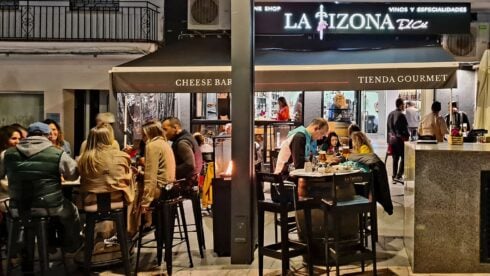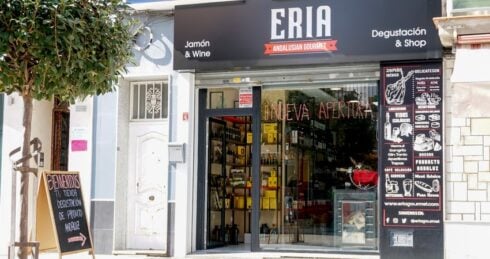IT’S beginning to smell a lot like Christmas, here in Spain, writes Karethe Linaae, when the buttery aroma of mantecados warm from the oven wafts from bakeries and abuelas’ kitchen windows, filling the chill December streets with festive expectation.
Sinful homebaked sweetmeats have been a guilty Christmas pleasure in these parts since Moorish times and every town, village, peña and brotherhood has its own traditional recipes – frequently jazzed up with a naughty nip of cider, sherry or aniseed liqueur.
READ MORE:
- The joys of Christmas in Spain include a twist on carols and likely clear skies… but beware of the free minibars, warns Karethe Linaae
- Andalucia nuns pay €100,000 fine to Junta for ‘illegal’ organ restoration
- From live music to five-star stays, Gibraltar has it all this Christmas and New Year’s Eve, writes John Culatto
But who could have guessed that some of the nicest (and naughtiest) are produced behind convent walls by nuns!
Some sisterhoods have been tempting mortals with their convent confections since the Middle Ages, guarding their recipes with the secrecy of the confessional.
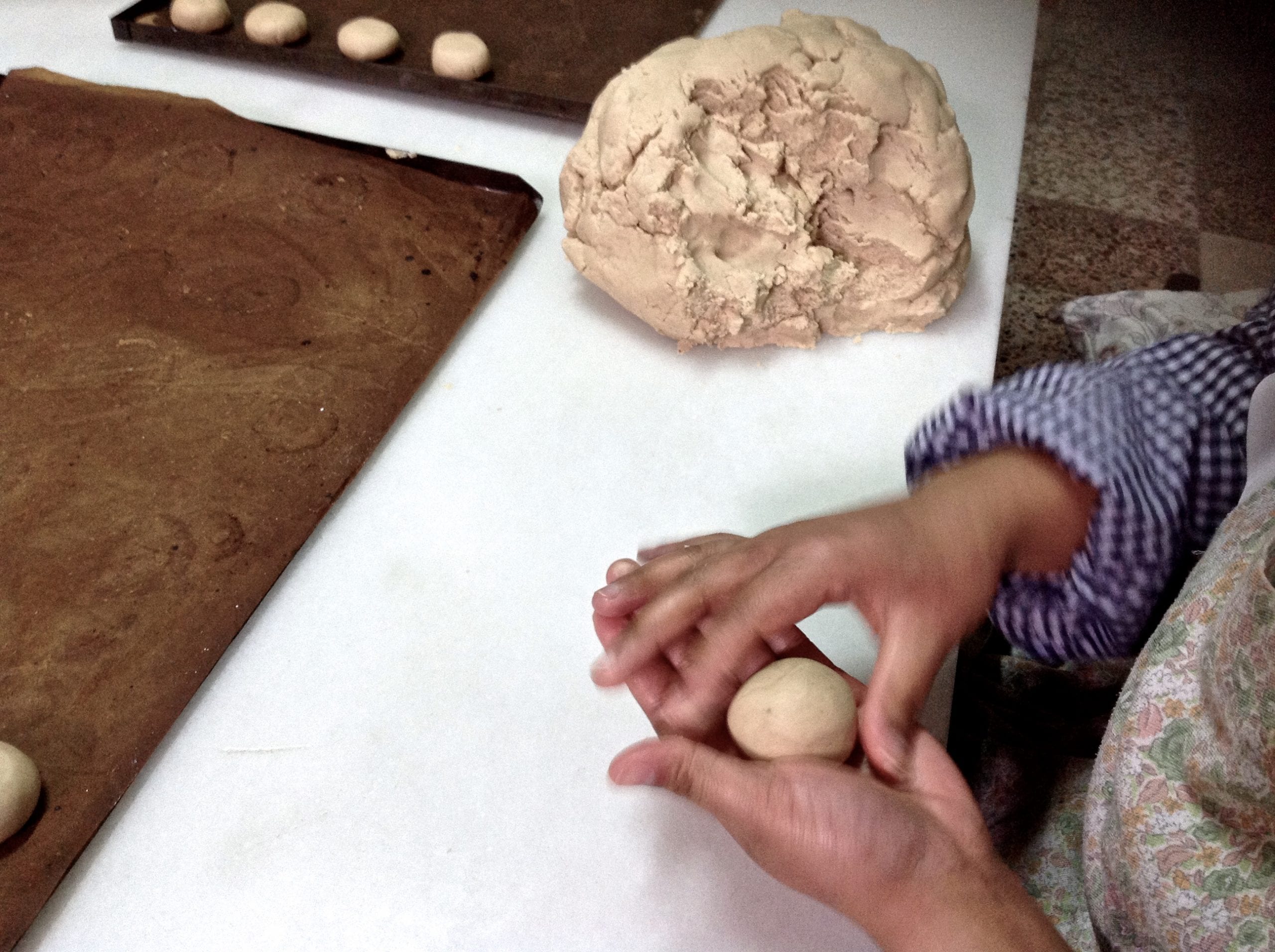
So it was with a fair degree of excitement that the Olive Press got to spend a morning baking with a group of group of nuns at the Convento San Francisco in Ronda… and the results were divine!
Convent pastries – such as Huesos de Santo (Saints’ Bones), Trufas de Madre de Dios (Mother of God Truffles) and Corazones (Sacred Hearts) de Santa Clara – are often christened to reflect their saintly origins. And the nuns work their culinary alchemy with the humblest of ingredients.
Augustine nuns at Sevilla’s Convento de San Leandro have been baking since the 16th Century and their most famous pastry, Yemas de San Leandro, contains only egg yolks, sugar and a few drops of lemon.
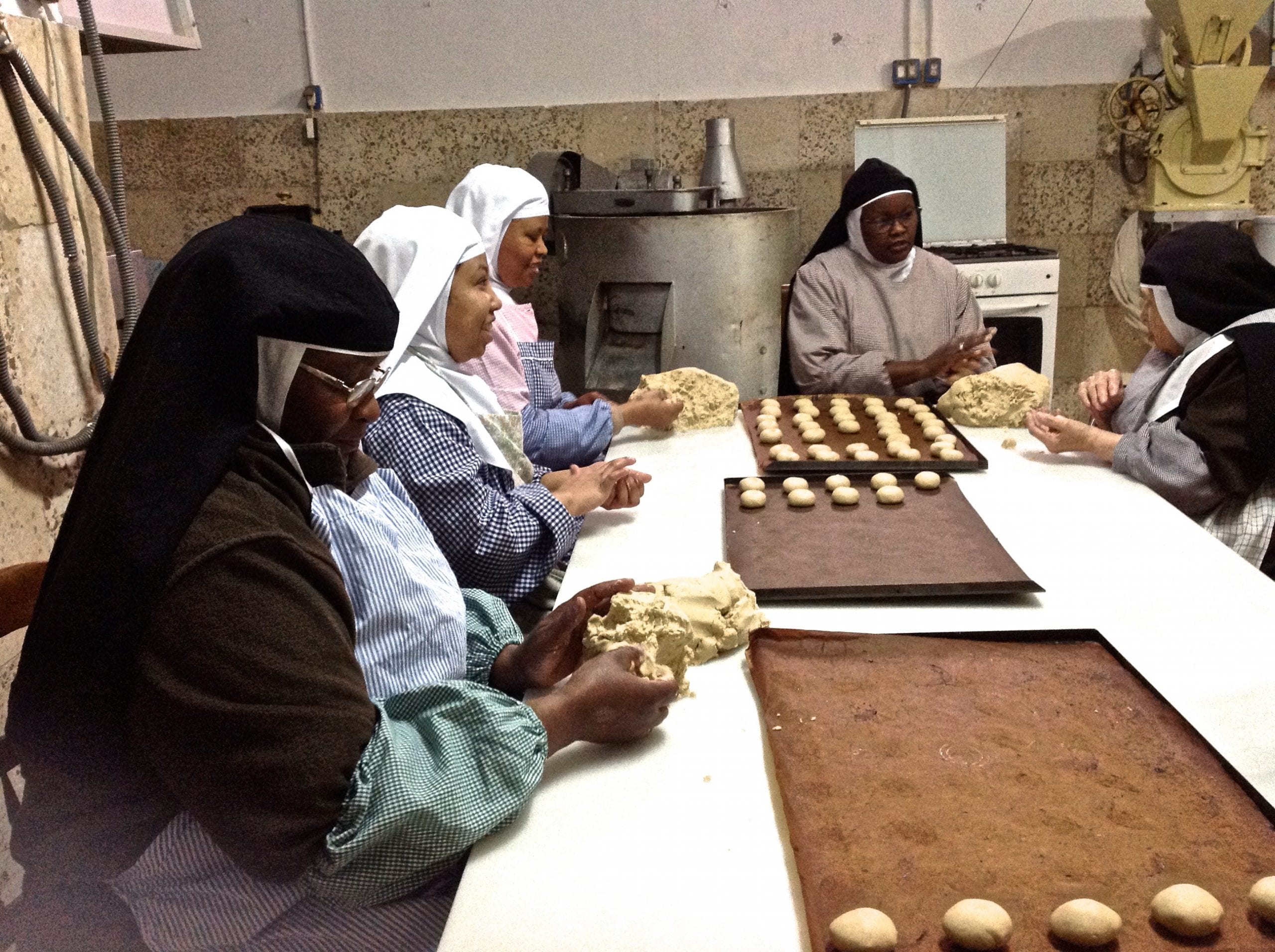
They are among a heavenly host of artisan reposterias made in Andalucía’s convent kitchens. Carmelite, Cistercian and Franciscan are among the orders now busy at their devotions to produce seductive sweetmeats for Christmas.
While initially selling to the surrounding communities, some convents now have websites, offer gluten-free alternatives, and can ship anywhere in the world.
Our local nuns in Ronda have also gained quite a reputation for their blessed dulces.
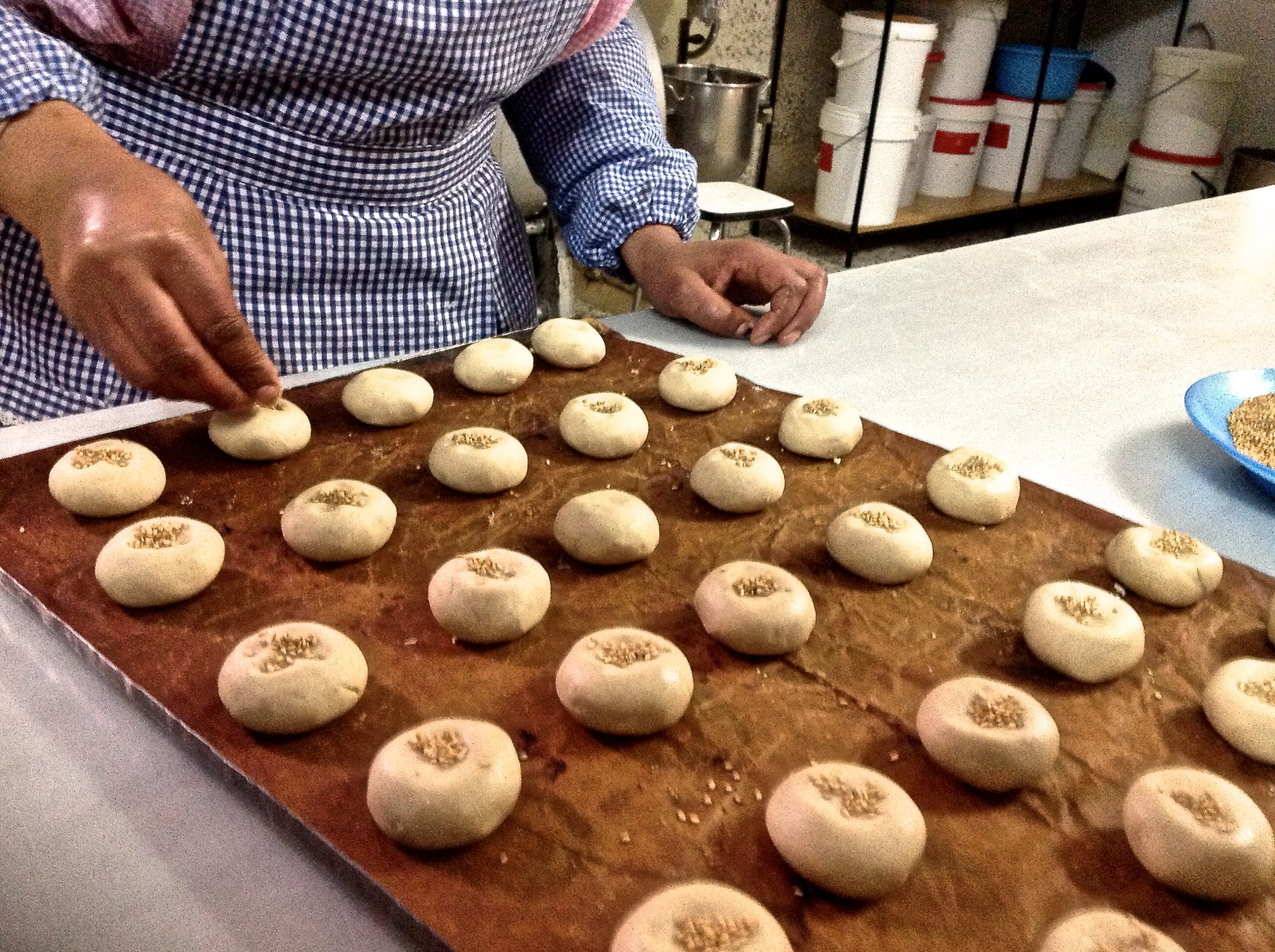
We are led in to meet them in their wonderful authentic kitchen in the bowels of their wonderful home, just off the mountain town’s historic Plaza de San Francisco.
We are soon watching ancient Sister Natividad cracking a sack of almonds on a tree trunk in the convent patio with a giant hammer.
As December begins, the sisters can be found rolling dough around the clock, kneading their love, care and culinary traditions into every bite-sized treat.
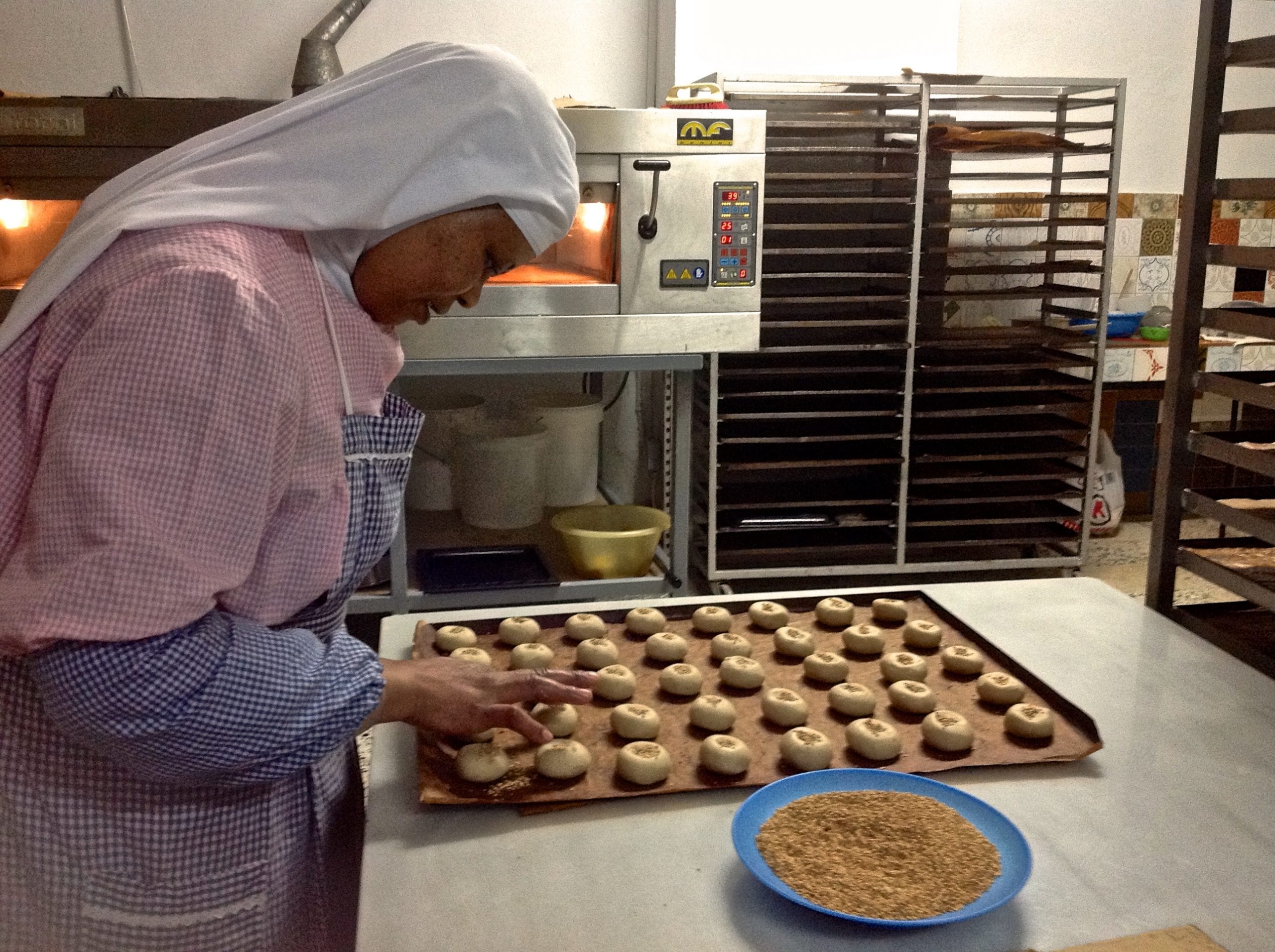
They are baking an incredible 35 kilos of mantecados – meaning a few thousand cookies – by hand in a single day!
Originating in Antequera and brought to fame in the tiny town of Estepa, mantecados have gone nationwide to become synonymous with a Spanish Christmas. What’s the secret? Could it be the generous amount of lard?
In their industrial-sized 19th-century kitchen, the sisters chat softly as they fill tray after tray with neat round dough balls which one of the novices will top with sesame seeds. After baking, each mantecado is individually wrapped in a silk paper with the convent’s seal.
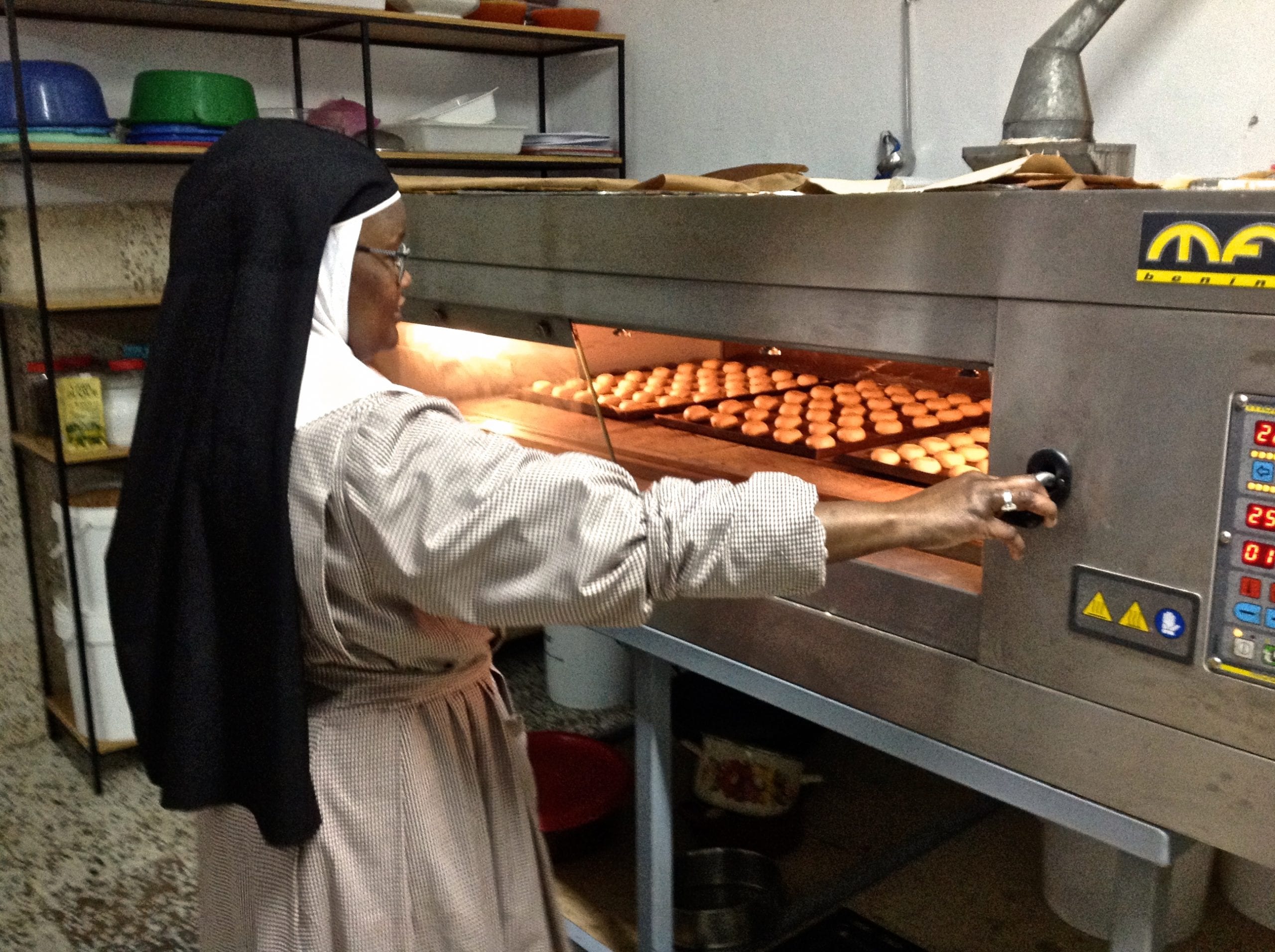
“Working and praying is our life”, Sor Isabel tells me.
Madre Nieves, the Abbess, adds touchingly: “With all the bitterness in the world, we pray that our treats will sweeten the lives of those who eat them”.
When I ask them where they keep their recipes, they look down at their busy hands, pretending not to hear.
Each convent has its own specialties and the recipes are sacrosanct.
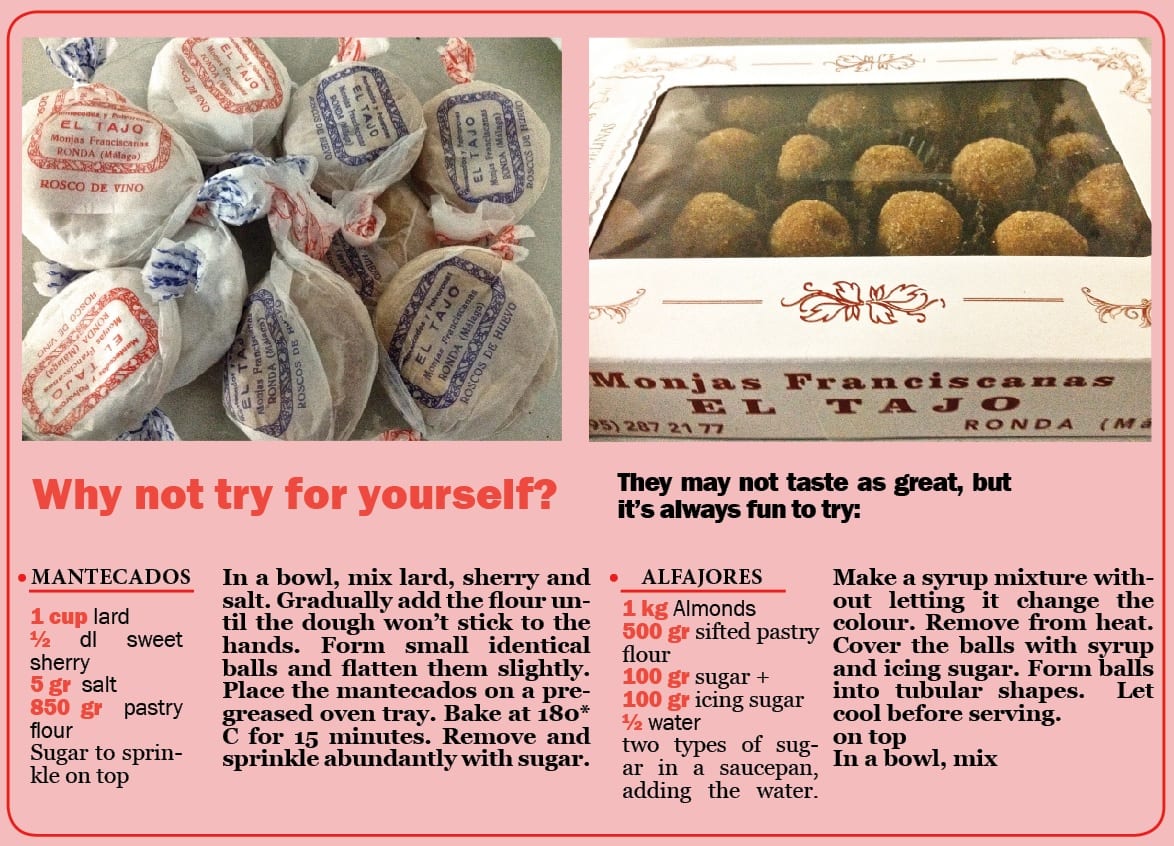
What I can disclose is that no pastry is made with more than a handful of ingredients and contains no preservatives or artificial flavourings; just ground almonds or wheat flour, butter or lard, cider or sugar and a touch or cinnamon, lemon peel or orange zest.
Most ingredients are grown locally, some in the monastic gardens. Some closed convents still sell their confections clandestinely through a revolving Lazy Susan embedded in the wall so as not to show their faces, but our nuns now sell them from their little store, albeit still behind bars.
People here say that the nun’s reposterias taste of home cooking, old village kitchens and a bit of heaven.
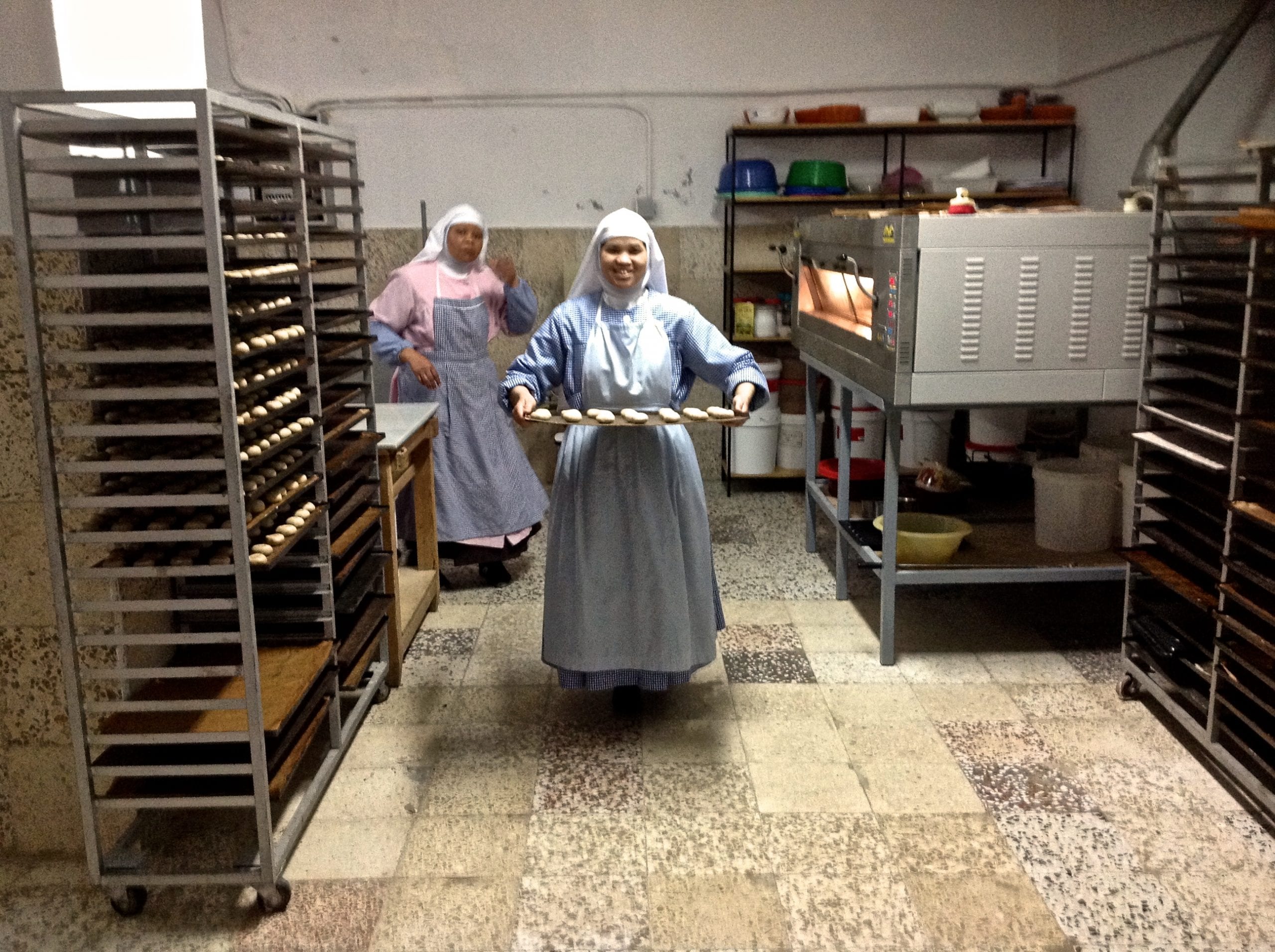
Thanks to the income from their baking, the sisters can continue their simple lives and maintain their convent.
By purchasing their artisan pastries, you are not only sharing in a best-kept Spanish gastronomic secret but also keeping alive an important part of the country’s culture.
And when you get to eat them – believe me – heaven can wait!
The convent in Barrio de San Francisco is open for purchases from 10.00 to 18.00. Tel: 952872177
Click here to read more Food & Drink News from The Olive Press.




